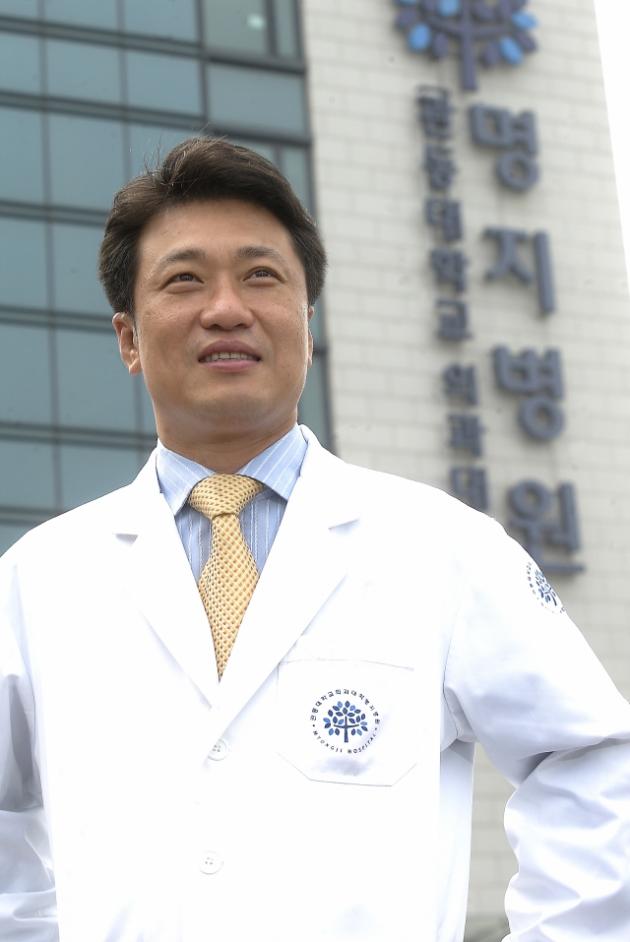Lee Wang-jun, chairman of Myongji Hospital, made headlines in late October when he became the largest shareholder of MGmed, a developer of molecular diagnostic techniques for various genetic diseases. It was the first time in Korea that a chairman of a general hospital acquired a listed firm.

Lee has been taking an unusual career path. When he was a medical resident at the Seoul National University Hospital’s surgery department, he and his colleagues founded The Korean Doctors’ Weekly, acquired a dying hospital to turn it around, and made it grow as a 400-bed hospital.
Currently, Lee serves as chairman of the Myongji Medical Foundation, which owns Incheon Sarang Hospital, Myongji Hospital, and Jecheon Myongji Hospital.
As of 2016, the foundation has more than 350 physicians, 850 nurses and 2,500 employees, providing medical care for 1 million patients a year on 1,500 sickbeds.
As a doctor, a media mogul, and a hospital CEO, Lee has acquired MGmed to develop new drugs. He expects Myongji Hospital as a clinical trial site, and MGmed will create synergy to accelerate the development of new drugs.
■ Related: Myongji Hospital chairman becomes MGmed’s largest shareholder
MGmed has been pushing to work on new oncological drug candidates especially since its largest stakeholder was switched to Lee from biotech venture Macrogen on Oct. 30.
MGmed said on Wednesday that it signed a letter of intent to acquire shares of a U.K. biotech venture Oxford Vacmedix (OVM). The Seoul-based company said it would become the largest shareholder of OVM, as soon as legal procedures for the acquisition are completed. Currently, Oxford University holds a 21.3 percent stake in OVM. Established in 2012 as a spinout from Oxford University, OVM develops anti-cancer treatments and diagnostics agents.
■ Related : MGmed emerges as largest shareholder of UK bio venture
“Among anti-cancer drugs, I’m particularly interested in oncolytic virus and immune checkpoint inhibitors. These kinds of drugs rarely cause adverse effects with maximized efficacy in combination therapies, which can exceptionally outperform the existing target therapies,” Lee said in an interview with Korea Biomedical Review on Thursday.
“The time needed for the development of new drugs is mostly spent on preparing and conducting clinical trials. If MGmed and Myongji Hospital can move as a team, we will be able to shorten the development period drastically,” he emphasized.
Lee also expressed an intention to make Myongji Hospital a center for Korea’s clinical trials. The hospital aims to complete the construction of Good Laboratory Practice (GLP) facilities for eco-friendly tests and Good Manufacturing Practice (GMP) facilities for pharmaceutical products by early next year.
“I acquired MGmed because I thought Myongji Hospital needed a research and development firm to become a ‘mecca’ of local clinical trials,” Lee said. “When MGmed develops new drugs, Myongji Hospital will be a reliable partner for a clinical trial.”
“Latest anti-cancer drugs are much advanced than old ones in safety and efficacy. I hope that patients will rush to Myongji Hospital to participate in clinical trials and the hospital becomes the center of a network with other hospitals for local clinical trials,” he said.

